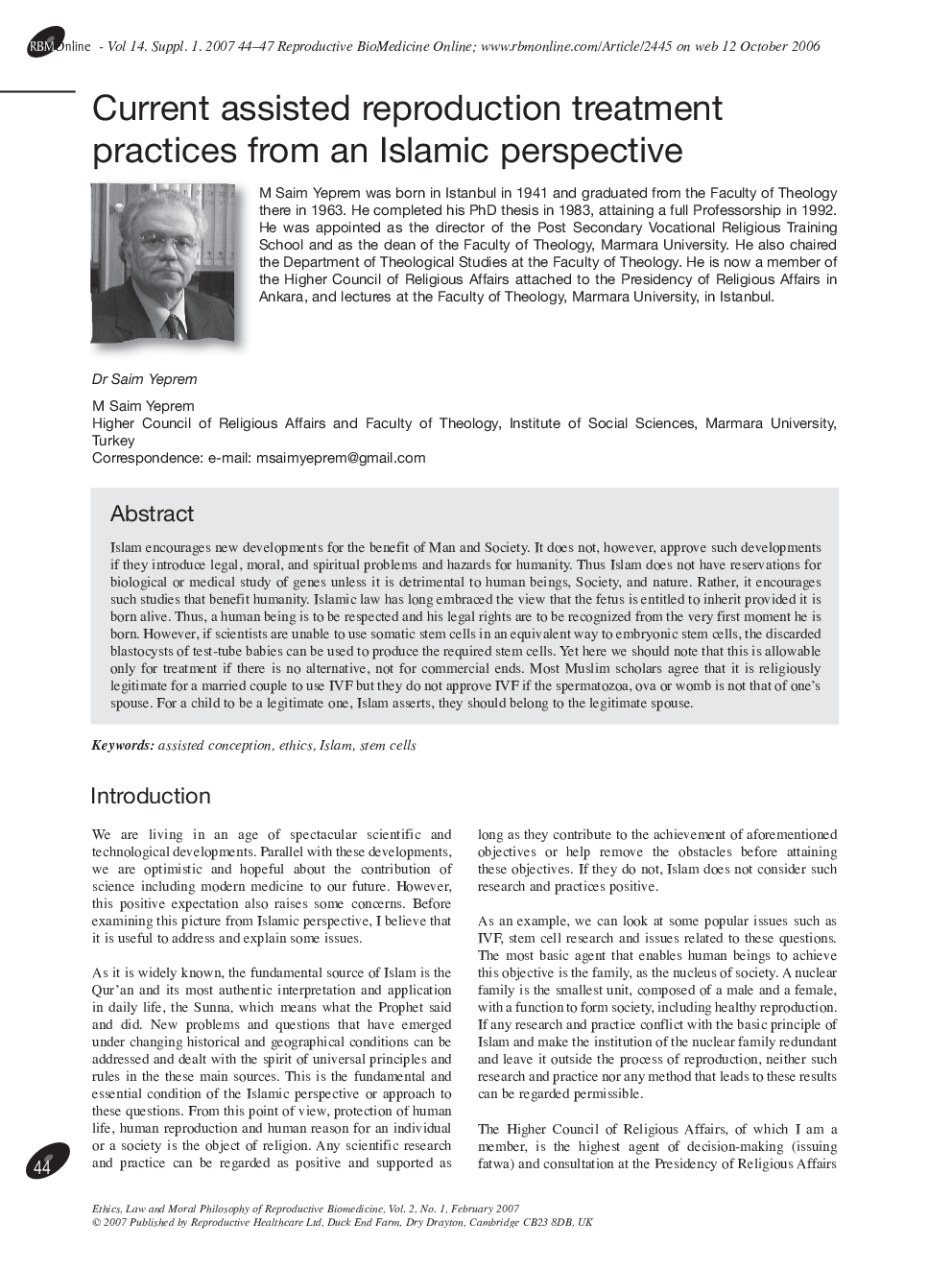| کد مقاله | کد نشریه | سال انتشار | مقاله انگلیسی | نسخه تمام متن |
|---|---|---|---|---|
| 3973479 | 1256858 | 2007 | 4 صفحه PDF | دانلود رایگان |

Islam encourages new developments for the benefit of Man and Society. It does not, however, approve such developments if they introduce legal, moral, and spiritual problems and hazards for humanity. Thus Islam does not have reservations for biological or medical study of genes unless it is detrimental to human beings, Society, and nature. Rather, it encourages such studies that benefit humanity. Islamic law has long embraced the view that the fetus is entitled to inherit provided it is born alive. Thus, a human being is to be respected and his legal rights are to be recognized from the very first moment he is born. However, if scientists are unable to use somatic stem cells in an equivalent way to embryonic stem cells, the discarded blastocysts of test-tube babies can be used to produce the required stem cells. Yet here we should note that this is allowable only for treatment if there is no alternative, not for commercial ends. Most Muslim scholars agree that it is religiously legitimate for a married couple to use IVF but they do not approve IVF if the spermatozoa, ova or womb is not that of one's spouse. For a child to be a legitimate one, Islam asserts, they should belong to the legitimate spouse.
Journal: Reproductive BioMedicine Online - Volume 14, Supplement 1, 2007, Pages 44-47